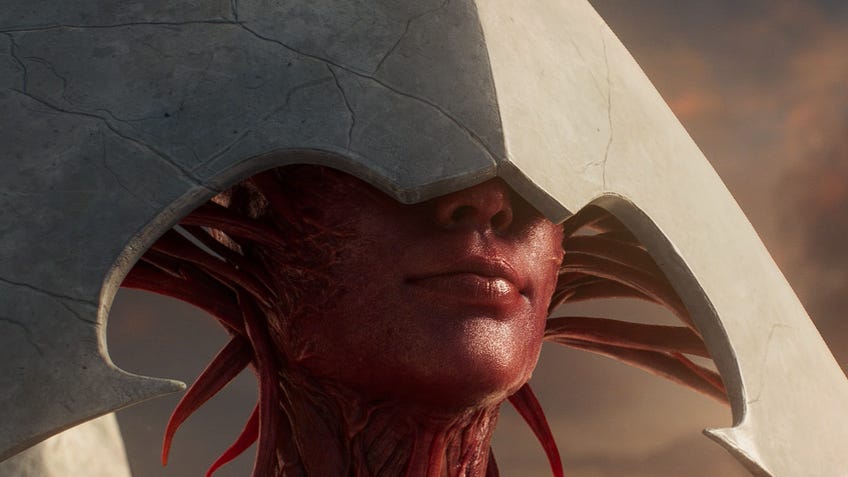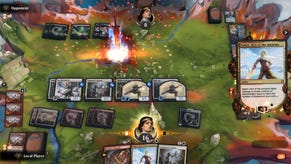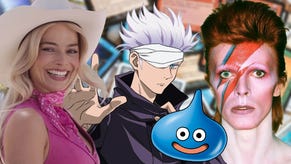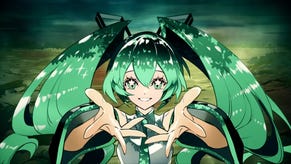What Magic: The Gathering needs to learn from the Marvel Cinematic Universe
Is Wizards of the Coast driving the TCG towards its own endgame?
Earth’s mightiest heroes travelled through time and space to stop Thanos in Avengers: Endgame, but they couldn’t actually save the Marvel Cinematic Universe. Just as the Mad Titan predicted, its rapid expansion turned out to be unsustainable. After years of big spending on TV shows and films yielded only shrinking audiences and mediocre reviews, the franchise effectively collapsed under its own weight. Now Marvel Studios is scrapping and delaying projects as it puzzles out the best way to move forward.
Magic: The Gathering had its own Avengers: Endgame moment last year with the release of March of the Machine, an epic set that brought decades of storytelling to a satisfying conclusion. Unfortunately, Wizards of the Coast seems to be on the same trajectory as Marvel Studios, burning goodwill and exhausting its fanbase with too many releases.
The reason for this is a villain far greater than Thanos or Elesh Norn: corporate greed. Wizards of the Coast is the primary money maker for Hasbro, which has been aggressively trying to squeeze even more value out of it for years in order to please stockholders. It’s the same motivation behind the publisher’s failed attempt to rewrite the Open Gaming License for Dungeons & Dragons.
Financial experts predict that the decisions Hasbro is making could prove just as disastrous for Magic: The Gathering. Bank of America warned in 2022 that the company was “killing its golden goose” by printing too many sets. It reiterated the warning last year, criticising Hasbro for attempting to “over-monetise” both Wizards of the Coast brands - “destroying customer goodwill” in the process. (Wizards, for its part, suggested that D&D and Magic: The Gathering were actually “really under-monetised”.)
Keeping up with MTG or Marvel can feel like intimidating homework.
Demand for both MCU content and MTG cards spiked during COVID-19, when people were looking for any distraction from lockdowns, and both Marvel and Wizards accelerated their release schedules. But this had the effect of compounding an existing problem with both brands: keeping up can feel like intimidating homework.
It’s bad enough when you feel like you need to watch multiple seasons of TV in order to understand what’s going on in the next Marvel movie. Magic players who actually want to win games need to be aware of the mechanics and cards they are likely to face and use the latest tools available to them. The research and testing that goes into developing a deck is a huge part of what makes the hobby so satisfying, but it’s exhausting and frustrating when that work is rendered largely irrelevant a month later.
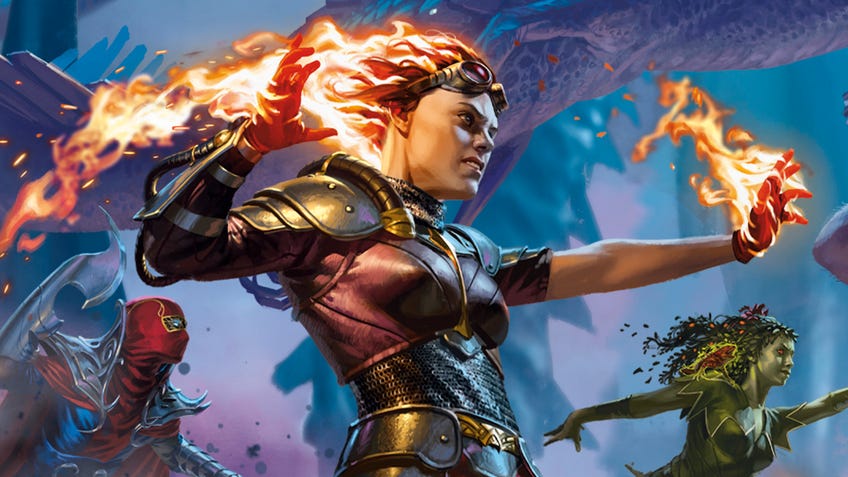
The cost doesn’t just come in time, but money. The churn is especially felt in Magic: The Gathering’s Eternal formats, which allow the use of cards that aren’t Standard-legal. Magic’s limited-release Secret Lair drops were fine when they were relegated to cosmetic collectibles for fans who wanted a version of one of Ikoria’s dinosaurs that looked like Godzilla. They started becoming a problem when the premium sets included mechanically unique cards that could help win Legacy and Vintage tournaments, like Rick, Steadfast Leader from The Walking Dead.
MTG's crossover releases change not only the game's mechanics but its character, edging out decades of complex storytelling in an original multiverse in favour of a Fortnite-like mashup of popular IP.
After the huge success of the Lord of the Rings crossover set Tales of Middle-earth proved to be one of the few upsides in Hasbro’s business for the year, the company is doubling down on its focus on licensed cards with Universes Beyond. So far the plan has included Commander decks devoted to Doctor Who and Warhammer 40,000, with the future promising more sets on Middle-earth and special inserts in Standard sets like the Jurassic World cards in The Lost Cavern of Ixalan. Even the MCU itself is going to get the card treatment.
These releases change not only the mechanics of the game but its character, edging out decades of complex storytelling focused on Dominaria and the other planes of MTG’s original multiverse in favour of creating a Fortnite-like mashup of popular IP. Not everyone is a Vorthos who cares deeply about the lore of Magic, and these sets may bring in new fans who don’t know who Urza is but are excited to play different versions of the Doctor with friends.

But Marvel learned the hard way how much fans were devoted to individual characters rather than the franchise. There have been standout debuts since Endgame’s batch of deaths and retirements, but audiences have been pretty tepid when it comes to the introduction of the Young Avengers and Thunderbolts. Much of the best superhero storytelling happening now is outside the MCU in X-Men ‘97, Invincible, The Boys and Spider-Man: Into the Spider-Verse.
In the first few months of 2024 alone, Magic: The Gathering has been beset by AI art controversy, released an overpriced set filled with underwhelming mythic rares, produced a bland set of Fallout Commander decks and a soulless Western-themed set overstuffed with Commander cards. Meanwhile, trading card game players have more options than ever - whether they’re primarily interested in a robust competitive scene, familiar characters or mechanics that will test their skills. The Phyrexians were prevented from devouring the worlds of Magic: The Gathering but the game is far from safe from those who believe they know best how it should evolve.
